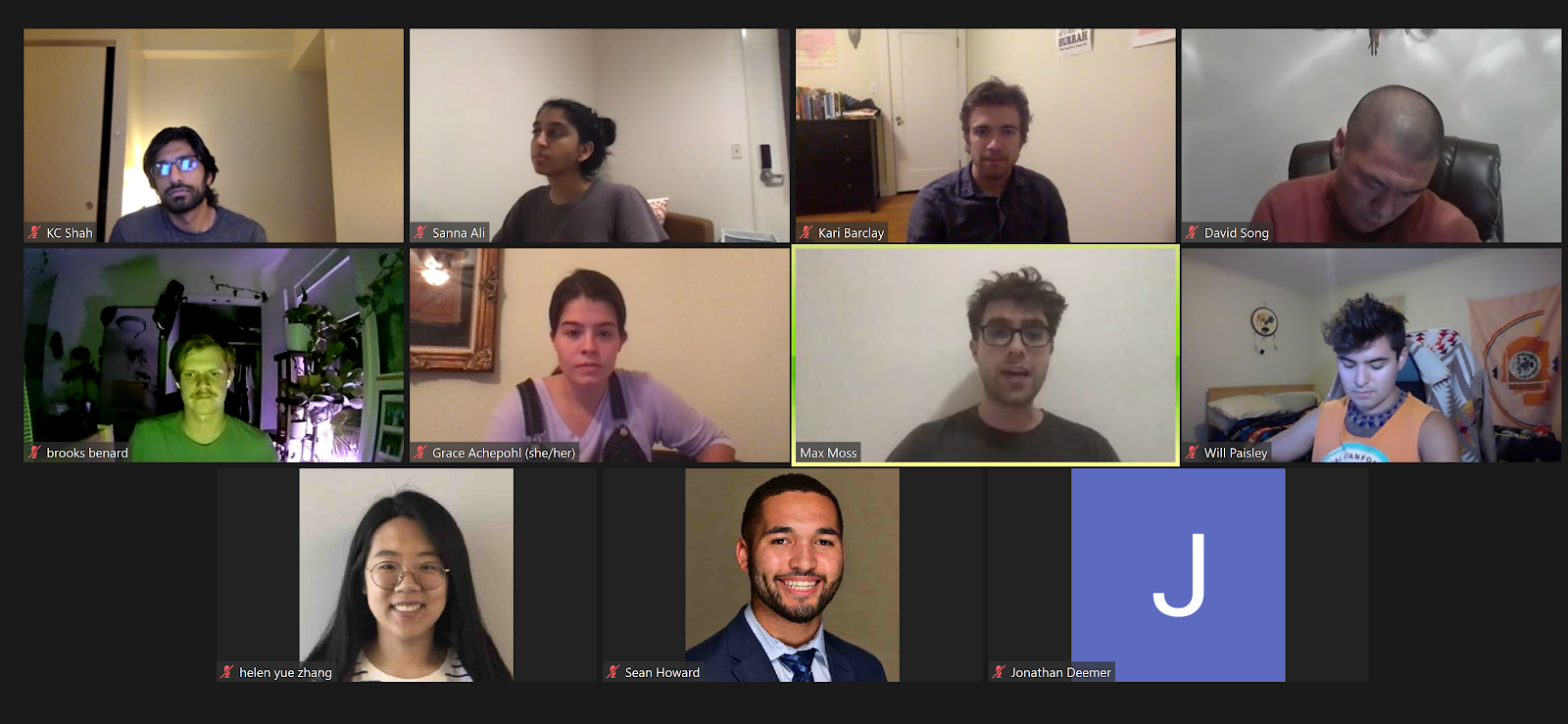The Graduate Student Council (GSC) unanimously passed a resolution recommending that the University give community associates (CA) and resident associates (RA) access to voluntary training programs on naloxone, a medication that can treat emergency narcotic overdoses, during their annual training.
Councilors also raised concerns about low rates of student participation in “social pods” and unanimously passed a bill to nominate Sherwin Lai ’24 to the Constitutional Council. The Constitutional Council adjudicates cases where the constitutionality of an act under the Associated Students of Stanford University Constitution is called into question.
Lai said that, as a part of the Council, he plans to work toward increasing transparency and accessibility between the council and the Stanford community.
The naloxone resolution also endorses allowing all Stanford community members access to such training programs. At the end of the program, attendees would be given an emergency kit containing naloxone. According to resolution co-author Max Moss ’21, a Stanford Emergency Medical Service leader, the Santa Clara Public Health Department (SCPHD) is willing to provide as many naloxone kids as needed for free to the Stanford community.
Stanford launched virtual training sessions in conjunction with SCPHD for community members last month.
“The bigger picture is that we want to be institutionalized,” Moss said. “We want to create a long-lasting, sustainable program where every quarter, every year, students can access our naloxone training.”
“We’re nowhere near that right now,” he added. “So we’re starting small, we’re starting here.”
Moss, who has been working on introducing increased naloxone training since March, said that there has been an uptick in the number of fentanyl-related overdoses over the past year. Fentanyl is an opioid 80 to 100 times stronger than morphine that has been found in counterfeit drugs near campus.
Between Jan. 1 and May 8, there were 19 fentanyl deaths reported, compared to just seven during that same period a year before, according to the County of Santa Clara Health System. In mid-January, a Stanford student died from a fentanyl overdose.
“A Stanford community where having Narcan is seen as a positive thing is a community where people who are struggling with substance use disorders can feel more comfortable coming forward,” Moss said, referring to Narcan, a nasal spray containing naloxone that prevents overdose-related deaths. “It is a community where people who are engaging in any kind of dangerous or risky substance use, understand and feel like they can access the resources that are available to them.”
Councilor Grace Achepohl M.S. ’21, who co-authored the resolution, said that she is working to conduct a survey regarding drug use within the graduate population in order to better understand the severity of the opioid epidemic at Stanford. She, along with the other co-authors, will present the resolution to the Undergraduate Senate on Thursday in hopes of passing it as a joint resolution.
Councilors also said not many students are signing up for social pods and discussed why students may be hesitating to sign up.
The pods, also known as “households,” are groups of up to eight students living in the same residential facility who can interact with one another without face coverings.
The University did not immediately respond to a request for more information on how many students signed up.
Council Co-Chair Will Paisley M.A. ’21 said that there might not be much of an incentive for students to sign up for social pods, given that the membership of a pod is restricted to those living in the same building.
“I think it’s something [the University will] definitely have to rethink for winter, and we’ll push for that because if there’s such a low retention rate and even creation rate for the pods, then the whole system itself is just ineffective,” Paisley said.
Paisley said that he plans to suggest possible solutions in an upcoming meeting with the Vice Provost for Graduate Education Stacey Bent and Vice Provost for Student Affairs Susie Brubaker-Cole.
Contact Tammer Bagdasarian at tbag ‘at’ stanford.edu.
